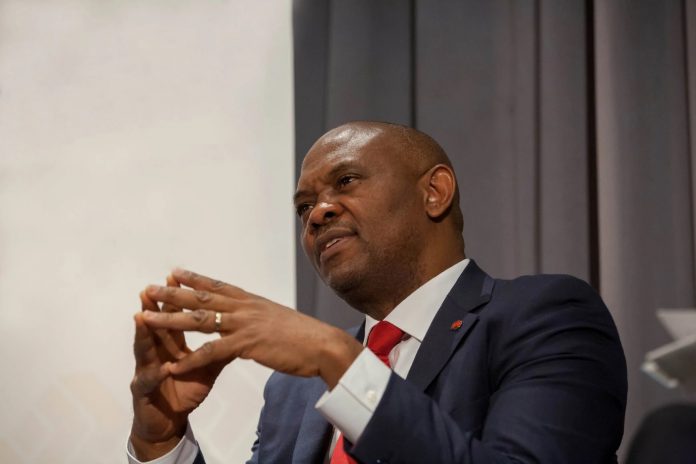The Chairman of Heirs Holdings, Mr Tony Elumelu, has decried the loss of over 95 per cent of the nation’s oil production to thieves.
In a twit by Elumelu on his verified Twitter Handle earlier today, the Heirs Holding boss lamented that Bonny Terminal which should be receiving over 200,000 barrels of crude oil daily(bpd), gets less than 3,000 bpd, forcing Shell and Eni to declare a force majeure.
Shell has said it will try to go elsewhere for business. The lost shipments could be significant for Nigeria. The country was scheduled to export almost 1.5 million barrels a day this month, loading plans show.
Force majeure is a legal step that allows companies not to meet contractual obligations for reasons that are out of their control.
A force majeure doesn’t necessarily mean the entirety of supply will be lost for a given period of time. Stored cargoes could still be shipped and repairs would allow shipments to resume.
‘‘This morning(yesterday), I was listening to my colleagues at the office bemoan the very pressing issues that they face every day in this country, and how things have been getting worse and worse,-no electricity for five days, hike in the of diesel, frightening food inflation.
Why are we paying taxes if our security agencies can’t stop this? It is clear that the reason Nigeria is unable to meet its Organisation of Petroleum Exporting Countries(OPEC) production quota is not because of low investment but because of theft, pure and simple.
Meanwhile, oil-producing countries are smiling as their foreign reserves keep rising. What is Nigeria’s problem? We need to hold our leaders more accountable.
Elections are coming-security and resources need to be everyone’s agenda let’s be vocal on our nation’s priority.
Evil prevails when good people are silent. We need to be vocal about 2023. Let’s focus on Nigeria. Demand and advocate for leaders that deliver. In 2023, Nigeria must be on a strong trajectory for progress and development,’’.
The force majeure declared Shell and Eni appears to have sent jittery down the spines of the country’s economic managers with oil revenue taking a nosedive.
Nigeria depends on oil for over 80 per cent of its revenue which is used to fund most capital and recurrent expenditure.
Indeed, shipments of the two grades had been planned at a rate of 170,000 barrels a day next month but have been in a state of decline over the past few years, according to loading programs seen by Bloomberg. Flows back in 2020 were planned at about 320,000 barrels a day.
The development is seen as a major threat to disrupt supplies in a market that’s already fretting about the impact of Russia’s invasion of Ukraine. Shell’s measure has been in place since March 3 and applies to its Bonny export program. Eni’s relates to Brass crude cargoes and follows a pipeline blast in the Bayelsa state.
Shipments of the two grades had been planned at a rate of 170,000 barrels a day next month but have been in a state of decline over the past few years, according to loading programs seen by Bloomberg. Flows back in 2020 were planned at about 320,000 barrels a day.






